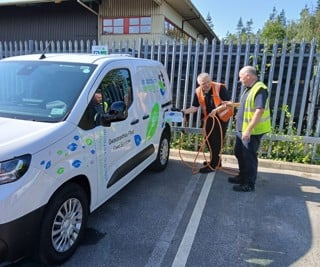One-in-10 drivers admit to ‘frequently’ tailgating, risky overtaking, failing to check mirrors sufficiently or ‘zoning out’ and being unable to recall part of a journey.
Many more of those surveyed, by Venson Automotive Solutions for Road Safety Week, confirmed they do each of these ‘occasionally’, highlighting the need for fleets to have a robust risk management strategy.
“No matter how good a driver thinks they are we all get into bad habits that can put us at risk on the road,” said Simon Staton, client management director for Venson Automotive Solutions.
“RoSPA figures suggest that ten to fifteen times more people are killed on the roads than in the workplace, so when the road is the workplace, businesses must take their duty of care seriously to protect drivers.
“Regular driver training keeps bad habits under control and road safety front of mind.”
The most common risky driving behaviours respondents admitted to were becoming impatient with a slow driver in the middle or outside lane on a motorway and overtaking using the inside lane (two in three do so frequently or occasionally).
Half have used the wrong lane at a roundabout and cut across or changed lanes suddenly and two-in-five have failed to check mirrors before pulling out, changing lanes or turning.
Overall, men were more likely to have taken risks than women and younger drivers were more likely than older drivers.
For example, one in five men and one in ten women admitted to close calls after ignoring giveaway signs, while almost half of 18-24-year-olds and less than one-in-20 over 65-year-olds have had the same experience.
Adequately checking mirrors is another area where respondents differ. Half of men and one-in-three women have failed to check properly before moving, while two-thirds of 18-24s and less than a quarter of over 65s do not regularly use their mirrors.
Staton said: “At Venson we work in partnership with our customers to ensure a rounded approach to duty of care that cuts the risk to drivers’ of company vehicles and the business.
“Working with RoSPA, we give each employee a risk exposure rating, which informs our recommendation for suitable solutions, including driver training, driving workshops, one-to-one sessions and e-learning.
“We make it as straightforward as possible for our customers to fulfil their duty of care and keep their fleet drivers safer on the roads.”






















Login to comment
Comments
No comments have been made yet.